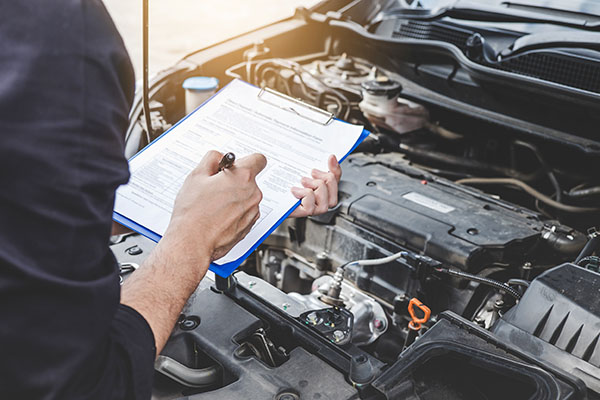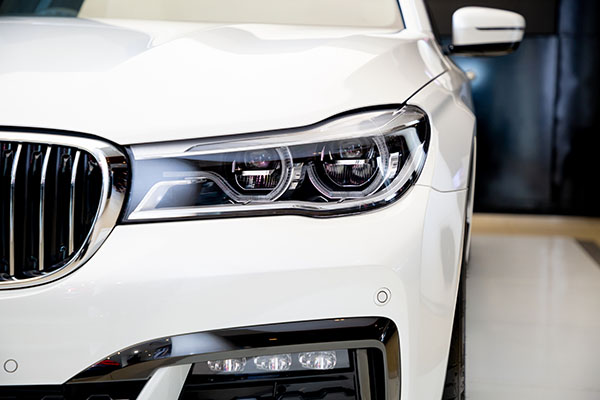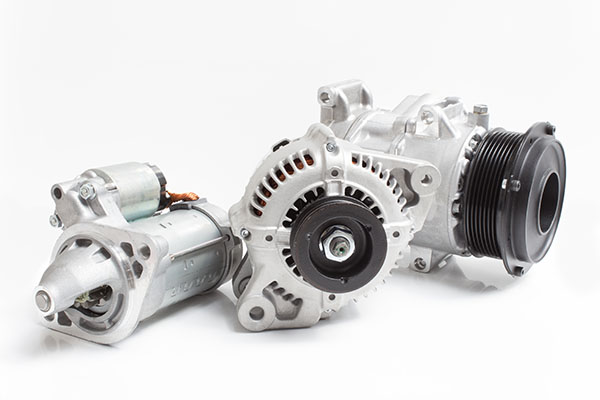Posted on 7/30/2023

Purchasing a car is a significant investment, and whether you're buying a brand-new vehicle or a used one, it's essential to ensure that you're making a wise and informed decision. One crucial step in the car-buying process that can save you from potential headaches down the road is a pre-purchase inspection. In this blog, we'll explore why a pre-purchase inspection is a "must" when buying a car and how it can safeguard your investment and provide peace of mind. What Does A Pre-Purchase Inspection Help With? Vehicle evaluation by a professional Avoiding hidden issues Protecting you from being scammed Price negotiation An honest and professional opinion Uncovering Hidden Issues No matter how pristine a car may appear, there could be hidden issues that are not apparent to the untrained eye. A pre-purchase inspection, conducted by a qualified and experienced mechanic, involves a comprehensive evaluation of the vehicle ... read more
Posted on 6/30/2023

When it comes to performance and driving pleasure, few automotive badges evoke as much excitement as the iconic "M" badge of the German auto-giant BMW. Synonymous with precision engineering, exhilarating speed, and track-inspired performance, the "M" badge has become a symbol of ultimate driving machines. With that being said, here is the shortened history of this iconic line of vehicles! Origins of the "M" Division The story of the "M" badge begins in the early 1970s when a group of BMW engineers, passionate about motorsport and performance, formed a dedicated division known as BMW M GmbH (GmbH is a type of legal entity). Their goal was to develop high-performance vehicles that could compete on the racetrack while embodying the same spirit on the open road. This division would lay the foundation for the iconic "M" badge that graces some of BMW's most coveted models today. What ... read more
Posted on 5/31/2023

Driving a car is a responsibility that requires a combination of skill, attentiveness, and adherence to safety guidelines. Whether you're a seasoned driver or a new car owner, prioritizing safety is essential to protect yourself, passengers, and other road users. In this blog post, we will discuss a few crucial safety tips that every driver and car owner should keep in mind. Regular Vehicle Maintenance Maintaining your vehicle in good working condition is vital for safety on the road. Schedule regular inspections and follow the manufacturer's recommended maintenance guidelines. Check your brakes, tires, lights, and fluid levels regularly. Address any issues promptly to avoid potential breakdowns or accidents caused by mechanical failures. Buckle Up Seat belts save lives, and that's a fact. Make it a habit to buckle up before starting your car, and encourage all passengers to do the same. Ensure that child passengers are properly seated ... read more
Posted on 4/30/2023

The starter and alternator are two essential components in a vehicle's electrical system, but they serve different purposes. Most people assume that they are similar or even the exact same part, but it's quite the opposite as you will shortly see in the blog. Starter The starter is responsible for initiating the engine's combustion process by cranking the engine to start it. When you turn the ignition key or press the start button, an electrical signal is sent to the starter solenoid, which engages the starter motor. The starter motor then turns the engine's flywheel or flexplate, allowing the combustion process to begin. The starter requires a significant amount of power to overcome the engine's initial resistance and provide the rotational force needed to start the engine. Once the engine starts running, the starter disengages automatically, allowing the engine to operate independently. Alternator Unlike the starter, the alte ... read more
Posted on 3/29/2023
.jpeg)
Turbochargers are a type of forced induction system that is commonly found in modern vehicles. They work by compressing air and forcing it into the engine, increasing the engine's power output. In this blog, we'll take a closer look at what a turbocharger is, how it works, and the benefits it provides to drivers. What Is a Turbocharger? A turbocharger compresses the air that penetrates the engine. It uses a turbine, which is powered by exhaust gases from the engine, to drive a compressor that forces air into the engine. The compressed air provides more oxygen to the engine, which increases the amount of fuel that can be burned, resulting in increased power output. How Does a Turbocharger Work? When the engine runs, exhaust gases are expelled through the exhaust system. These gases pass through a turbine, which is located in the exhaust stream. The turbine is connected to a shaft, which is connected to a compressor. As the exhaust gases pass through the turbine, they cause ... read more